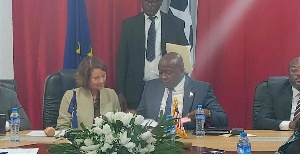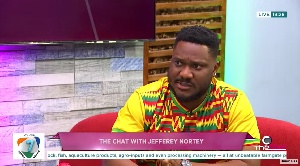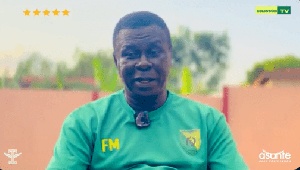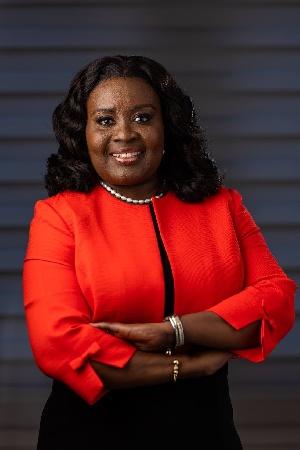Africa News of Thursday, 15 May 2025
Source: www.ghanawebbers.com
Liberia: EU Provides €56m Budget Support
Finance and Development Planning Minister Augustine Kpehe Ngafuan praised the European Union's €56 million budget support to Liberia. He called it a "vote of confidence" in the government's reform agenda. The direct grant shows the EU's trust in Liberia's commitment to transparency and economic governance.
Ngafuan spoke during the signing ceremony for the EU Budget Support Financing Agreement on May 13, 2025, at the Ministry of Finance and Development Planning in Monrovia.
He expressed gratitude on behalf of President Joseph Nyuma Boakai and the Liberian people. "This support is a grant, not a loan," he emphasized. The €56 million translates to about US$62 million over three years. An additional €7 million will enhance public financial management through SIDA.
Ngafuan noted that this grant will benefit the national budget and strengthen public financial systems. He stated that it sends a clear message endorsing ongoing reforms in Liberia.
"The budget support goes directly to our government budget," he said. "It reflects confidence in our reform efforts with the EU." He mentioned agreed indicators and a serious policy dialogue framework to justify this support.
He highlighted Liberia's progress in domestic resource mobilization. In 2024, out of a US$738 million national budget, US$698 million was raised locally—over 90%. "We aim to depend almost entirely on our own resources for development," Ngafuan added.
He also announced plans by the Liberia Revenue Authority (LRA) for major digitization efforts this month. This initiative aims to increase efficiency and speed up government processes.
"We are impatient with delays," he said, referencing consultations with key ministries to address challenges. Ngafuan praised the Auditor General for their performance under difficult conditions, promising continued support for the General Auditing Commission (GAC).
"We must do more," he stated, emphasizing that good work leads to greater expectations. He commended the EU for increasing its support while other partners reduced theirs.
"You are fulfilling your commitments," Ngafuan remarked. "We will strive to be worthy recipients of your support."
Ambassador Nona Deprez from the EU reaffirmed confidence in Liberia's reform agenda during her speech at the event. She expressed satisfaction over finalizing the financing agreement, which includes €56 million in direct budget support and €7 million for complementary measures.
"This reflects our belief in your commitment to ambitious reforms," she said. The complementary funding will focus on improving revenue mobilization, strengthening audit institutions, and enhancing accountability through civil society engagement.
"This agreement results from many months of discussions," she added, thanking all involved ministries for their openness about challenges and priorities. She hoped that disbursement requests would begin soon so that ideally €22 million could be released into treasury funds by 2025.
Ambassador Deprez stressed that this program aims to reinforce Liberia’s public finance systems and create an investment-friendly environment while supporting local rice production and conserving protected areas.
Earlier at the ceremony, Deputy Minister Tenneh G. Brunson welcomed participants and highlighted their partnership's significance. She described it as a reaffirmation of shared commitments to governance and development amid fiscal constraints.
Brunson praised the EU’s flexible approach aligning with Liberia’s ARREST Agenda (Agriculture, Roads, Rule of Law, Education, Sanitation, Tourism). She noted that predictable support allows better planning aligned with national priorities.
She concluded by assuring the EU of Liberia’s commitment to policy reforms and prudent fiscal management: "Together we can make steady progress toward a more resilient and prosperous Liberia."
The signing ceremony was attended by senior officials from government agencies, EU member states representatives, development partners, and civil society leaders.











